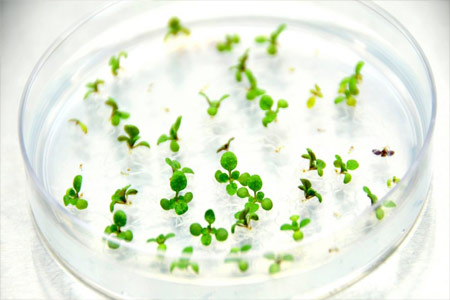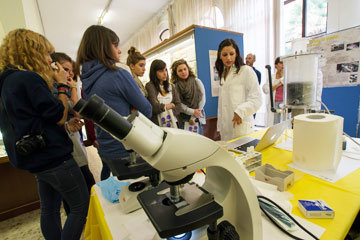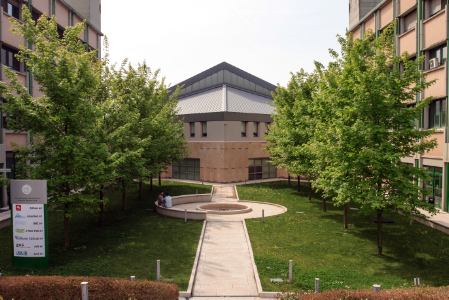Learning outcomes
Pharmacogenomics
1) Basic facts about pharmacogenimics and pharmacogenetics
2) Main drug classes and their molecular targets
3) Genetic basis of inter-individual variability in drug response
4) Genetic polymorphism in genes coding for phase I and II enzymes
5) Genetic models for the development of new drugs
Gene Therapy:
1) Basic facts about cell and gene therapy
2) Aims and limits of gene therapy
3) Tools used in gene therapy
4) Applications
5) Stem cells and their therapeutic use
1. Pharmacogenomic: introduction
• Definition
• Origin and history
• “Trial and error” vs personalized medicine
• Adverse drug reactions
• Pharmacokinetics and Pharmacodynamics
• Pharmacogenetics and Pharmacogenomics
• Objectives
• Clinical trials
2. Human genome
• Human genome project
• Sequencing methods
• New sequencing techniques
• Human genome organization
• Shotgun e Contig
• Gene prediction
•
3. Polymorphisms
• Gene variability
• Polymorphisms
• SNPs
• Genes influencing drug response
• Haplotypes
4. Difference in individual response
• Genomics technologies
• Microarray
• Therapeutic range
• Enzyme-drug interactions
• Biotransformation
• Variability
• Folic acid metabolism
• Ethanol metabolism
5. Cytochrome P450 (1(2)
• Generality, reactions, nomenclature
• Polymorphisms
• CYP2C19
• Proton pump inhibitors
• CYP2C9
• Anticoagulants (Warfarin, Ibuprofen, Phenytoin, Carbamazepine)
6. Cytochrome P450 (2/2)
• CYP2D6
• Codein
• CYP34A e 35A
• Statins
7. Neurodegenerative diseases and antitumor drugs
• Alzheimer
• Tamoxiflen
• TK inhibitors: Glivec
• EGFR: Gefitinib e Erlotinib
• Anti-cancer monoclonal antibodies
• ALK: crizotinib
• MDR-1 and NAT
8. TPMT, asthma
• TPMT: thiopurines
• TPMT polymorphisms
• Asthma
• Genes
• Beta2 adrenergic receptor
• 5-Lipoxygenase
• Glucocorticoids receptor
9. Anti-HIV therapy
• HIV and AIDS
• Host and viral genome
• Anti-HIV treatment
• Virus resistance
• HIV variability
• HAART
• Adverse reaction
• Natural resistance
• Abacavir hypersensitivity
• MDR1 and HIV
10. Future prospectives
• Pharmacogenomics
• Polygenic determinants
• Difficulties
• Resources
• Pharma industry
• Drug development
• Pharmacogenomics in scientific literature
• Current and future application in pharmacogenomics
• Comments, obstacles, education
11. Gender therapy, ethnicity, etic considerations
• Gender therapy
• Research
• Adverse reactions and gender
• Ethnic differences
• Slavery Hypertension Hypothesis
• Etic problems
• Genetic tests
• Patents
• Privacy
• Considerations
• Etic, legal and social implications
12. Introduction to gene therapy
• Definition and goals
• Clinical trials
• Applications
• Vectors
• Gene therapy in vivo and ex vivo
• Example: ADA
• Transgenes
• Somatic and germ cells
• Technical difficulties
• Future perspectives
• Etic considerations
13. Cell cultures, gene control, vectors
• Cell cultures
• Sterility
• Conditions
• Primary cultures and immortalized cultures
• Techniques
• Crio-preservation
• Mycoplasmas
• Cell banking
• Control of gene expression
• Promoters
• Vectors in gene therapy
14. Non-viral vectors and siRNA
• Non-viral vetors
• Plasmid
• Electroporation
• Liposomes
• Amine
• Anti-sense therapy
• RNA interference
• Viral vectors: introduction
15. Adeno and adeno-associated vectors
• Adenovirus
• Adenoviral vectors
• First and second generation adenoviral vectors
• Helper virus
• Toxicity
• PEGhilation
• Adeno-associated virus
• Recombinant AAV
16. Gene therapy of metabolic diseases
• Metabolic diseases
• Phenylketonuria
• Urea cycle defects
• Crigler-Najjar
• Glycogen storage disease
17. Retroviral and lentiviral vectors
• Other vectors: herpes simplex, poxvirus
• Retrovirus
• Genome and viral proteins
• Infetious cycle
• Retroviral vectors
• Helper
• Retroviral vector construction
• Lentivirus
• HIV, regulation
• First, second and third generation lentiviral vectors
• Multiple genes
• Integration
• Lentiviral vectors and therapy
• HIV to fight HIV
18. Gene therapy of infectious and hematopoietic diseases, cystic fibrosis
• Gene therapy of HIV
• Gene therapy of hematopoietic diseases
• β-thalassemia
• Trial in animal models
• Clinical trial phase I
• Cystic fibrosis
• Clinical manifestations
• Animal models
• Gene therapy
19. Neuromuscular and cardiac diseases
• Dystrophies
• Duchenne/Becker muscular dystrophy
• DMD
• Isoforms
• Animal models
• Therapy
• Utrofin
• Cell therapy DMD
• Gene therapy DMD
• Cardiovascular disease
• Atherosclerosis
• Animal models
• Gene therapy atherosclerosis
20. Stem cells
• Stem cells: origin
• Stem cells: definition
• Embryonic Stem Cells
• iPS cells
• Differentiation
• Therapeutic application
• Adult stem cells
• Stem cells niche
• Tissue engineering
21. Cell therapy and regenerative therapy
• Regenerative therapy
• Hematopoietic stem cells
• Mesenchymal stem cells
• iPS and reprogramming
• Epidermis regeneration
• Cornea regeneration
• Cardiac tissue regeneration
• Pancreatic tissue regeneration
• Bone tissue regeneration
22. Gene therapy of solid tumors
• Stem cells and cancer
• Wnt signaling
• Proliferation and progression
• Experimental therapies
• Antisense
• Chemoprevention
• Immunity
• Suicide genes
• Oncosuppressors
• P53
Therapeutic cloning
• Cloning
• Somatic cell nuclear transfer (SCNT)
• Cloning: classification
• Reproductive cloning
• Therapeutic cloning
• Cloned species
• Applications, problems
• Ethic considerations
• Future perspectives
24. Experimental applications
• Retroviral and lentiviral vectors: experimental applications
• Antitumor vaccination and tumor therapy







